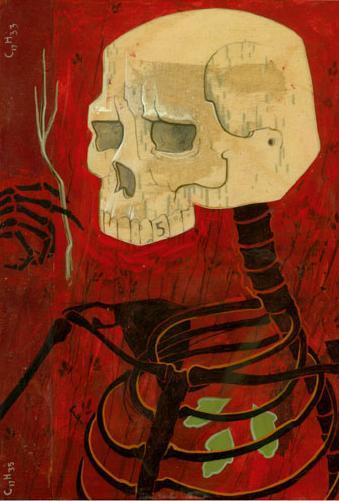Zadie needs no lessons in public humility. She has consistently derided her first book as expansive, overambitious drivel, her second as seriously flawed. How better to shun criticism than to welcome it honestly and dispose of its target? Yet seems to me that within her self-criticism lies a very strong conviction that, regardless of what reviewers may have to say for her immature novels, she will be getting better. But she just can't get to it now because that pesky literary establishment keeps making her a celebrity, and pouring on adulation about her ridiculous little novels. A recent article in Slate asks the Man Booker
 committee to take Zadie at her word and pass her by for the prize. On Beauty is by most reviews an admirable work, yet not a work deserving of the prize because of the approach she has taken upon her own work; she "has mistaken her admirable pooh-poohing of a lot of foolish publicity for a free pass to get by as an overcelebrated mediocrity."
committee to take Zadie at her word and pass her by for the prize. On Beauty is by most reviews an admirable work, yet not a work deserving of the prize because of the approach she has taken upon her own work; she "has mistaken her admirable pooh-poohing of a lot of foolish publicity for a free pass to get by as an overcelebrated mediocrity."Admittedly, Julian Barnes is the favorite, but for reasons of stature more than merit. His recent "Arthur & George" has been reviewed as , in line but not exeplary of other exhumings of the literary dick. Zadie's book has it's own roots in the Canon, being a very forthright reinterpretation of the story and circumstances in E.M. Forester's Howard's End. When the Slate article gets around to picking apart the book, Joon finds fault with Zadie's somewhat typified description of American liberal professors. Admittedly this is in line with an article who's stated purpose is to explain why Zadie isn't right for the prize, but still the criticism comes out seeming a little small. Was that the point?
Further evidence of the humble hubris that Zadie seems to calmly exhude is an interview she did with Ian McEwan in the August edition of The Believer. The exchange is admittedly aware of it's double punch: while Jim Roll interviews Bjork, Zadie Smith is 'in conversation with' Ian McEwan. In one particularly revealing exchange, Zadie asks Ian about canabalization of personal life for representation in literature:
i wondered how you felt about [your progression as a writer] yourself...I mean, you're working life has been a writing one. And this is a subject which honestly concerns me, not a little, because it's my life and it's likely to be my life for a really long time.
Never mind the willingness to make us aware that this is an interview between two writers. Zadie is placing herself no higher than something of an intelligent apprentice, albeit one that will be able to write for the rest of her natural life. Not that i doubt that prospect; given the size of her advances, and the quality of her short and long fiction, Zadie makes a fair assement of her possible future as an author in the world. It is nevertheless presumptive.
Perhaps the most interesting for me is what Zadie seems to have learned from her experience in America. As i attempt to integrate myself within British culture, one of the most distinct elements underlying where you go and what you do with your life is your assumed (or delivered) social status among the unseen stratum that dictates vocation, address, and recreation.

No comments:
Post a Comment